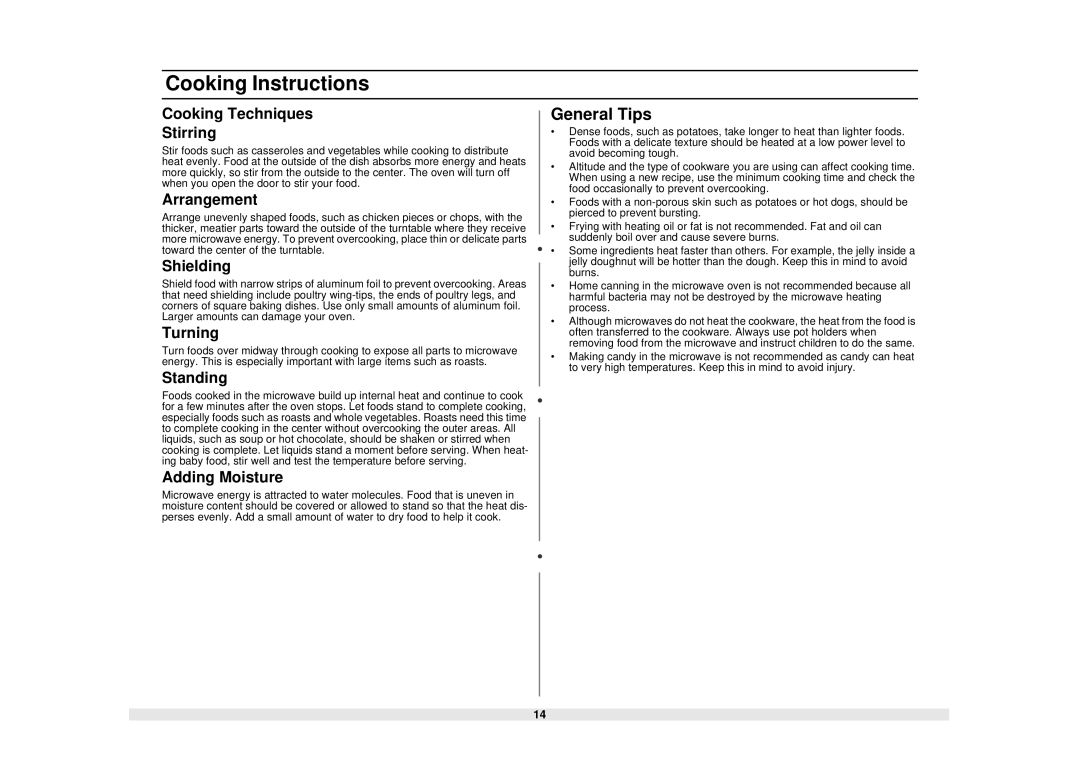MS1440WB, MS1240WB, MS1040WB, MS840WB specifications
The Samsung MS840WB, MS1240WB, MS1040WB, and MS1440WB represent a modern lineup of microwave ovens that incorporate cutting-edge technologies and user-friendly features, designed to enhance the cooking experience in any kitchen.The Samsung MS840WB microwave stands out with its sleek design and powerful 800 watts of cooking power, making it a reliable tool for quick meal preparation. This model features Samsung's innovative Sensor Cook technology, which automatically adjusts cooking time and power based on the moisture emitted from the food, ensuring optimal results every time. Additionally, it comes equipped with a ceramic enamel interior that is not only easy to clean but also resistant to scratching and bacterial growth.
Similar to the MS840WB, the Samsung MS1240WB microwave offers enhanced functionality with a slightly higher capacity. Its 1.2 cubic feet interior allows for larger dishes, making it ideal for families or meal prepping. The intuitive control panel features pre-programmed cooking options that simplify meal preparation, allowing users to easily select settings tailored to specific foods. The MS1240WB also benefits from Samsung’s Eco Mode, which reduces energy consumption when the microwave is not in use.
The Samsung MS1040WB model emphasizes convenience and fast cooking with its compact design, making it a perfect fit for smaller kitchens or dormitories. Despite its size, it boasts 1000 watts of cooking power and offers a range of cooking presets for everything from popcorn to pizza. The easy-to-read display and one-touch buttons enhance usability, while its durable construction ensures longevity.
Finally, the Samsung MS1440WB microwave features a larger capacity of 1.4 cubic feet, catering to diverse cooking needs. It combines smart technology with a stylish exterior, featuring a stainless steel finish that complements any modern kitchen. The MS1440WB includes a dedicated defrost function, making it easy to thaw frozen foods quickly and evenly, while the child lock feature enhances safety in homes with young children.
In summary, the Samsung MS840WB, MS1240WB, MS1040WB, and MS1440WB microwaves each offer distinctive features that cater to a variety of cooking needs. With advancements in microwave technology, user-friendly controls, and efficient cooking power, these models represent Samsung's commitment to enhancing everyday cooking. Whether you are heating up leftovers or preparing meals from scratch, these microwaves provide versatility and convenience for every household.

